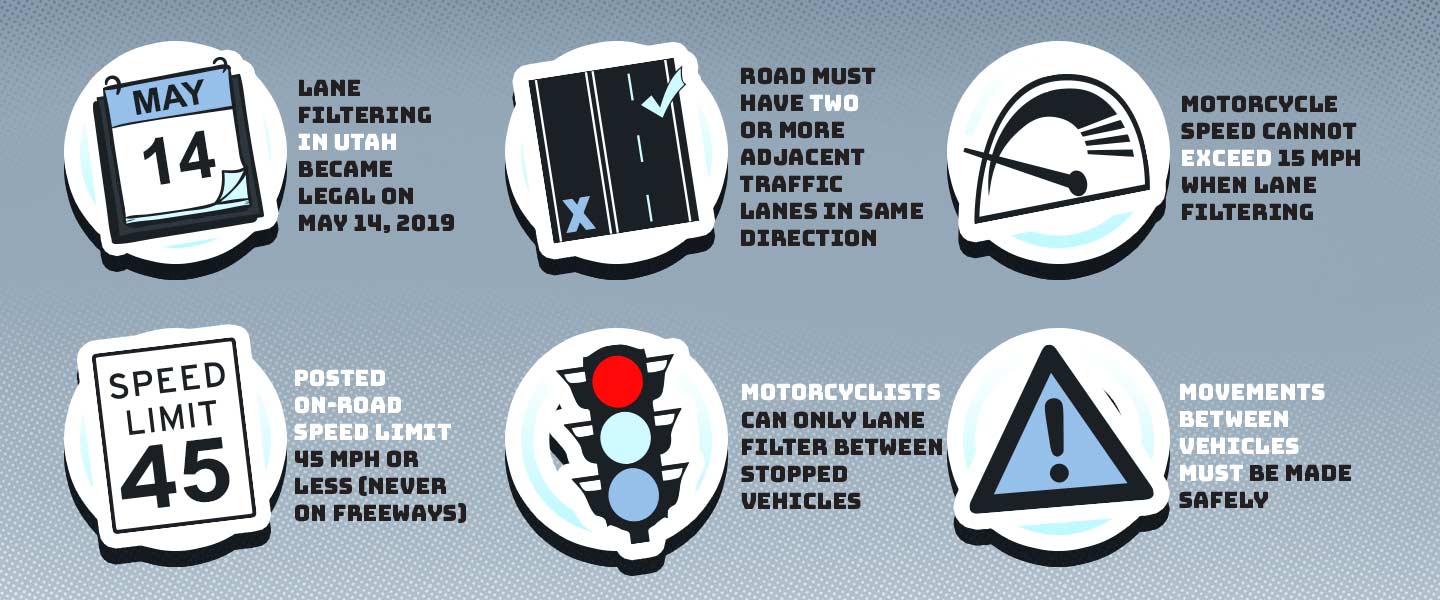rights
utah lane filtering
Meet The Lawmaker Who Championed The Bill
Like many motorcyclists, Utah state Rep. Walt Brooks (R-St. George) starting riding minibikes when he was about 6 years old, and his love of riding never faltered.
Brooks was the moving force behind the 2019 bill that brought legal lane filtering to Utah.
The victim of two rear-end collisions while riding, Brooks brought a powerful story and unique perspective to the lane-filtering debate.
American Motorcyclist: What got you started riding motorcycles?
Walt Brooks: I’ve loved motorcycles as long as I can remember.
My first experience was with my older brother’s little minibike when I was about 6 years old. I asked Santa for a motorcycle every year since then but he never came through with that request.
AM: Which bike was your favorite?
WB: My favorite bike was a Honda XL600R, and my friend had one just like it. I rode it often to high school. Then, after school, we could go on a quick ride out in the Southern Utah desert.
AM: Why do you think lane filtering is important for motorcyclists’ safety?
WB: I, unfortunately, know too well what that means. It is easy to get distracted, and it can be too easy to not see someone on a motorcycle. I have been rear ended while on my bike, and it does not tickle.
When coming to a stop light, I would often scoot up between the cars, just a bit, so I would be out of the lane and could quickly jump forward if needed.
When starting legislation, we found that I was not alone with getting rear ended. In fact, being hit from the rear was one of the top causes for motorcycle injuries. Data showed that lane filtering, particularly at stop signals and while other vehicles are stopped, made a significant reduction in motorcycle accidents.
AM: What other benefits does lane filtering provide?
WB: Lane filtering also allows more vehicles to safely go through each green traffic light, reducing traffic wait times along with less pollution due to [motorcycles’] smaller engines.
AM: What was the biggest obstacle you faced in getting the lane-filtering bill passed in Utah?
WB: It was the experience of most people who had visited California to have a motorcycle fly past while on the freeway. It’s quite startling to have someone buzz past you without seeing them coming.
It just feels very dangerous, since cars can change lanes easily, not giving motorcycles enough time to move. We pointed out California’s lane “splitting” is different from Utah’s lane “filtering,” which is only permitted on roads with a speed limit less than 45 mph and only when vehicles are stopped. Vehicles can’t suddenly change lanes when they are all stopped.
“Data showed that lane filtering, particularly at stop signals and while other vehicles are stopped, made a significant reduction in motorcycle accidents.”
AM: What advice would you give legislators in other states on this issue?
WB: Good data drives good decisions.
There are data that show lane filtering has a positive effect in reducing motorcycle accidents and deaths. Lane filtering has only been in effect for one year [in Utah], but the accident and death rates seem to be having the desired effect.
AM: What suggestions do you have for motorcyclists who want similar legislation passed where they live?
WB: Same as above. Sometimes it’s difficult to overcome misperception. I think showing accurate and honest numbers is the key.
AM: What else would you like to say?
WB: Stand strong and ride on.


